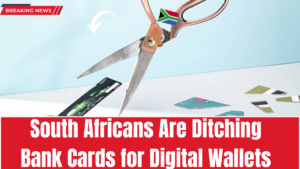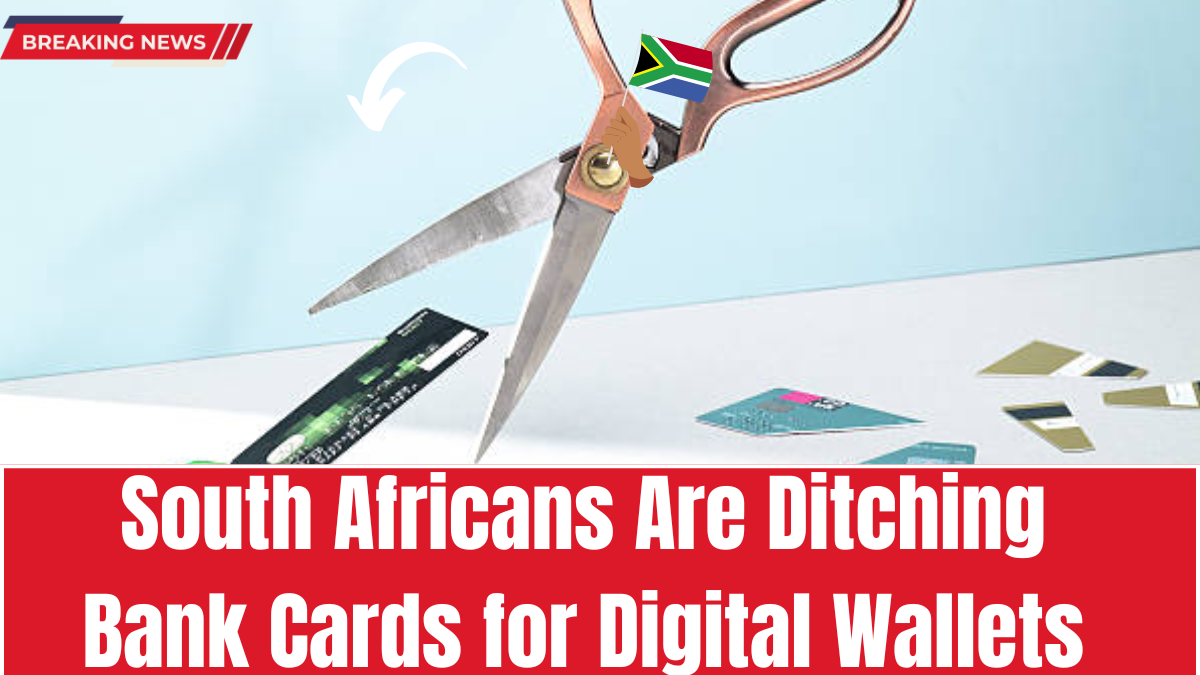South Africa is seeing a major shift in the way people pay, as more consumers turn to smartphones and smartwatches instead of carrying physical bank cards. Digital wallets are quickly gaining popularity, driven by convenience, security, and strong support from local banks.

What Are Digital Wallets and How Do They Work?
Digital wallets securely store your debit or credit card information on your mobile device. When a device with NFC (near-field communication) is held near a contactless-enabled terminal, a payment is made instantly.
Wallet apps like Apple Wallet, Google Wallet, Samsung Wallet, and Garmin Wallet have grown rapidly in South Africa, especially with support from eight major banks including FNB, Capitec, Absa, Nedbank, Standard Bank, and Investec.
Standard Bank Reports Huge Digital Wallet Growth
South Africa’s largest bank by assets, Standard Bank, has seen digital wallet transactions grow by 54% in volume and 57% in value between 2023 and 2024. The share of total transactions made through digital wallets reached 5%, up from 3.5% the previous year.
Additionally, 16% of all issued cards were loaded into digital wallets by 2024, with cheque cards accounting for the majority of transactions.
Why Digital Wallets Are More Secure and Convenient
Standard Bank highlighted two main advantages of digital wallets:
-
Enhanced security: Transactions use tokenisation and biometric authentication (face/fingerprint), making it harder for fraudsters to access your details.
-
Better convenience: Instead of carrying multiple cards, users just need their smartphone or smartwatch.
Unlike traditional tap payments that might allow small purchases without a PIN, digital wallets always require unlocking the device before making a payment.
Other Banks Show Rapid Wallet Adoption
Other major South African banks have reported similar growth:
-
Absa: 20% more wallet enrollments and 75% growth in transaction values by August 2024.
-
Capitec: 238% increase in wallet values and 225% rise in volume between June 2023 and June 2024.
-
Nedbank: Confirmed notable growth in wallet-based transactions in 2024.
The Rise of Virtual Cards
Virtual cards, designed initially for safer online shopping, are also playing a part in reducing physical card dependency. Many banks allow virtual cards to be linked directly to accounts and used via digital wallets for in-person purchases.
Some banks offer virtual cards that aren’t tied to any physical card at all, giving users more flexibility.
Apple Wallet Leads the Pack
Of all the wallets available in South Africa, Apple Wallet remains the most popular. According to Standard Bank, Apple Wallet accounted for 83% of digital wallet transactions made in 2024.
FAQs
What is a digital wallet?
A digital wallet is an app that stores your bank card information securely on your smartphone or smartwatch, allowing you to pay with a tap at any contactless terminal.
Which banks in South Africa support digital wallets?
Banks including FNB, Capitec, Absa, Nedbank, Standard Bank, RMB, Investec, and Discovery Bank support digital wallets like Apple Wallet, Google Wallet, Samsung Wallet, and Garmin Wallet.
Are digital wallets safer than physical cards?
Yes. They use encryption and biometric security (like fingerprint or face ID), making them more secure than traditional swipe or PIN-based card transactions.
Can I use a virtual card for in-store payments?
Yes. Virtual cards can be added to digital wallets and used in-store just like physical cards, provided your phone or smartwatch supports NFC.
Which digital wallet is most used in South Africa?
Apple Wallet is currently the most popular option among South African users, accounting for over 80% of wallet-based transactions at banks like Standard Bank.
Click here to know more.
Aanchal is a passionate writer with a keen interest in storytelling, content creation, and creative expression. She enjoys exploring diverse topics and crafting engaging narratives that captivate readers.

